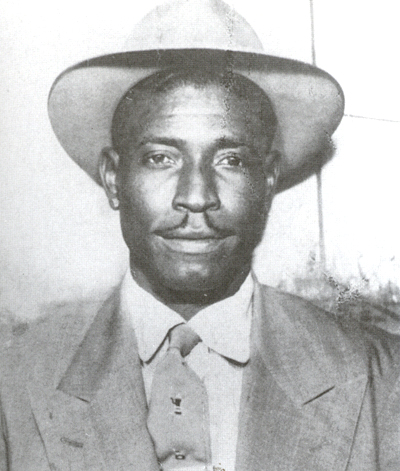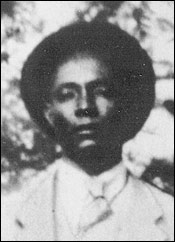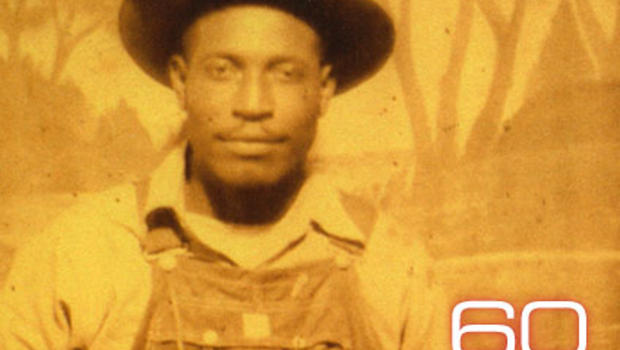
Good Morning POU.
Continuing with our somber look at the domestic terrorism perpetrated upon the African-american citizens for simply wanting to be treated with respect and dignity.
Louis Allen (April 25, 1919 – January 31, 1964) was an African-American resident and businessman with a family in Liberty, Mississippi; he was shot and killed on his land after trying to register to vote and being suspected of talking to federal officials about the 1961 murder of a black man by a white state legislator. Since the late 20th century, the case has been investigated by a history professor at Tulane University, by the FBI beginning in 2007 as part of its review of civil rights-era cold cases, and in 2011 by CBS 60 Minutes; all point to Allen’s having been killed by Daniel Jones, then the county sheriff. No one has been prosecuted for the murder. Allen was among a dozen witnesses of the murder of Herbert Lee by E.H. Hurst, a white state legislator, in September 1961. Civil rights activists had come to Liberty that summer to organize for voter registration; essentially no black had been allowed to vote since 1890, when the state disenfranchising constitution was passed.
The murder of Herbert Lee
Herbert Lee was a 42 year old a dairy farmer and father of nine children in Amite County. He had been a member of the NAACP since the early 1950s. When SNCC voting rights activists started working in Amite and Pike counties in the fall of 1961, Lee, a close friend of the Amite County NAACP branch chairman E.W. Steptoe, became involved, helping to transport the workers and orient them to the locale.
Mississippi’s constitution of 1890 politically disenfranchised African-Americans, using provisions such as poll taxes, literacy tests and grandfather clauses to exclude them from voting. In the early 1960s, a local chapter of the NAACP was founded by E.W. Steptoe for the purpose of registering black voters. He was soon joined by Robert Parris Moses of the Student Nonviolent Coordinating Committee (SNCC). In August 1961, Moses filed charges against Billy Jack Caston, cousin to Sheriff Daniel Jones and son-in-law of pro-segregation state legislator E. H. Hurst, for an assault against himself and other civil rights activists by a white mob. It was the first time that an African American had legally challenged white violence in Amite County. The white jury acquitted Caston and Moses was escorted to the county line, ostensibly for his own safety. Moses left the county in January 1962. Steptoe consulted with Justice Department agents in Jackson about intimidation tactics used by Hurst and other prominent whites in Liberty.
In mid-September, Assistant United States Attorney John Doar and others from the Justice Department interviewed several persons in Amite County about infringements of the voting laws. They learned that one E.H. Hurst, a member of the Mississippi state legislature, had been threatening to harm activists in Amite, including Herbert Lee.
On the morning of September 25, E.H. Hurst ran into Herbert Lee at a cotton gin. Lee, who grew up with Hurst, was arriving while Hurst was departing. Hurst cornered Lee on the side of Lee’s pickup truck and shot him dead in front of about a dozen witnesses. Lee’s body remained next to his truck while the sheriff quickly organized a coroner’s jury. Several black witnesses, including Louis Allen, fearing for their own lives, lied to the coroner’s jury and testified that Lee, a small man, threatened Hurst, who stood 6 feet 3 and weighed about 200 pounds, with a tire iron. On the day Lee was slain, the coroner’s jury concluded Hurst shot in self-defense.
After the coroner’s jury ruled the homicide justifiable, there were no further legal proceedings in the Lee murder. However, one witness, Louis Allen, later told FBI investigators that he had been forced to lie to the coroner’s jury.
After his FBI statement, Allen was subjected to severe harassment from Jones. On June 30, 1962, Allen was arrested by Jones for “interfering with the law”; Jones broke Allen’s jaw in two different places. A month later, Allen gave an affidavit to the Justice Department describing the attack on him by Jones. On August 21, 1962, Allen and two other men attempted to register to vote in Amite County but they were turned away by Jones and others. On September 11, 1963, Allen testified before a federal grand jury about Daniel Jones breaking his jaw. The grand jury declined to indict Jones. On November 6, 1963, Allen was again arrested by Daniel Jones for a ”bounced check” and a “concealed weapon.” The county attorney told Allen would get “three to five years” in the penitentiary for the offense. After three weeks in jail, Allen was released on an $800 bond provided by the NAACP.
After Allen’s FBI statement about the Herbert Lee murder, his associates and family members were subjected to severe harassment. On February 21,1963, Leo McKnight, his wife, pregnant daughter, and son-in-law perished in a house fire. McKnight had been an employee of Allen’s, and allegedly he was warned by Jones to stay away from him. The fire may, some suspect, have been related to Jones’ vendetta against Allen. In the summer of 1963, John Wesley Horton, Allen’s nephew, was arrested and jailed by Jones.
Because of the severe harassment, Allen had planned to leave the county, but before he could do so, on January 31, 1964, he was shot to death in his driveway. Allen was ambushed at the cattle grid at the border of his property. He was killed by two shotgun blasts to the head. His body was found by his son Henry (called Hank).
Interviewed by CBS 60 Minutes in 2011, Hank Allen said, “He [Sheriff Daniel Jones] told my mom that if Louis had just shut his mouth, that he wouldn’t be layin’ there on the ground. He wouldn’t be dead.” The evening before he was shot, Allen had visited his employer to obtain a letter of recommendation for his intended move the next day to Milwaukee, Wisconsin.
Investigations
No thorough investigation into Allen’s murder was conducted until 1994. That year, Plater Robinson, a history professor at Tulane University, began examining the case files. Robinson’s research in the following years pointed to county sheriff Daniel Jones as a likely suspect in the killing. In 1998, Robinson conducted a tape-recorded interview with Alfred Knox, an elderly black preacher in Liberty. Knox said that Jones had recruited his son-in-law, Archie Weatherspoon, to “kill Louis Allen”. When Weatherspoon refused Jones’ request to “pull the trigger”, Jones allegedly killed Allen himself. Both Knox and Weatherspoon are since deceased.
In 2007, the FBI reopened Allen’s case as one of a number of civil rights-era cold cases it was examining. Its staff identified Jones as the prime suspect. As of 2011, the FBI has been unable to collect enough evidence to prosecute. In April 2011, 60 Minutes broadcast a report about the Allen case. Correspondent Steve Kroft had traveled to Liberty to interview local residents about the case. He was largely met with silence. Kroft interviewed former sheriff Daniel Jones on his property; the elderly man denied killing Allen, and he invoked the Fifth Amendment when asked about his alleged Klan membership.



